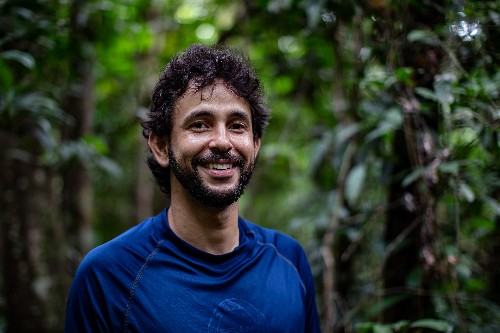University of Bristol Researcher Acknowledged as Future Leader by UKRI
Bristol’s Dr Filipe Machado França is among the 75 research leaders benefiting from £101 million investment by UK Research and Innovation (UKRI) to tackle major global challenges.
Dr França, who is based in the School of Biological Sciences, will lead a research programme into the drivers and consequences of insect biodiversity changes in forests across the pantropics.
Insects constitute most of all known species and play crucial roles in ecosystem functioning and human well-being. At the same time, tropical forests are global hotspots of insect diversity and have vital importance for mitigating climate changes and achieving international conservation goals. Yet, tropical forests and insects face multiple threats, including pollution, habitat loss and degradation.
Dr Franca said: “I am absolutely delighted about receiving a Future Leader Fellowship to work on my dream project on tropical insect biodiversity. The fellowship will allow me to set a long-term insect monitoring in forests across the Pantropics, which is key to tackling many knowledge gaps related to insect trends and responses to environmental changes and agrochemicals.”
Dr França and his team will investigate the influence of environmental changes and human impacts on insect biodiversity in forests from Malaysia, Ghana and the Brazilian Amazon. To achieve this, they will apply cutting-edge tools, from molecular techniques to ecotoxicology analysis, to reveal the impact of multiple stressors on insects and their cascading consequences for insect food webs with other animals and plants in tropical forests.
He added: “I hope my Future Leader Fellowship will promote transformational changes in the tropics through generating scientific evidence to inform conservation policy and sustainable practices. Through this project, my team and I will conduct fieldwork in the world’s most biodiversity forests and bring together key scientists and stakeholders to co-design evidence-based recommendations to safeguard tropical insect biodiversity.”
Filipe is also a member of the Equity, Diversity and Inclusion committee in the School of Biological Sciences, and called attention to recent studies outlining that much of the ecological research conducted in the Global South has been led by Global North scientists.
“Being awarded a Future Leader Fellowship also means that a tropical ecologist from the Global South will be doing research in the tropics. It will be a step-change in my career, I will continue using my leadership position to stand up for, support and advocate for increasing diversity in STEM [Science, Technology, Engineering, and Mathematics] and academia,” he explained.
The UKRI FLF initiative aims to empower and provide long-term support and training for talented researchers and innovators to explore adventurous new ideas and bridge the gaps between distinct sectors and disciplines. Awardees in the latest round will each receive up to £1.5 million over the first four years, a total investment of £101 million by the UKRI.

